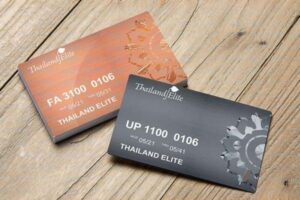Life can become unpredictable, and sometimes, managing personal affairs or assets can become challenging due to unforeseen circumstances. In such situations, a Power of Attorney (POA) empowers another individual to act on your behalf in Thailand. This guide delves into the essentials of POAs in Thailand, equipping you with the knowledge to utilize this legal tool effectively.
What is a Power of Attorney?
A Power of Attorney is a legal document that grants another individual, known as the attorney-in-fact (or agent), the authority to act on your behalf (the principal) in specific matters. The scope of this authority is outlined within the POA document.
Types of Power of Attorney in Thailand:
The Thai legal system recognizes two primary types of POAs:
- General Power of Attorney (GPA): Grants broad authority to the attorney-in-fact to handle various matters on your behalf, including managing finances, property, and representing you in legal matters. However, GPAs can be risky as they give extensive control to the attorney-in-fact.
- Special Power of Attorney (SPA): Grants limited and specific powers to the attorney-in-fact for a particular task or transaction. This is the preferred option for most situations as it minimizes potential misuse and ensures the attorney-in-fact can only act within the defined scope.
Creating a Power of Attorney in Thailand:
The process of creating a valid POA in Thailand involves the following steps:
- Drafting the POA: The POA document must be drafted in Thai by a qualified lawyer to ensure it complies with Thai legal requirements and clearly defines the scope of the attorney-in-fact’s authority.
- Signing the POA: Both the principal and the appointed attorney-in-fact must sign the document in the presence of two witnesses who are at least 18 years old and possess Thai identification cards.
- Registration (optional): While not mandatory for all POAs, registering the document with the District Office where the principal resides can provide additional security and proof of its validity in specific situations.
Important Considerations:
- Clarity and specificity: It’s crucial to clearly define the scope of the attorney-in-fact’s authority in the POA document to avoid potential misunderstandings or misuse.
- Choosing the right attorney-in-fact: Select someone you trust implicitly, has good judgment, and understands the responsibilities entrusted to them.
- Revoking a POA: You can revoke a POA at any time by notifying the attorney-in-fact in writing and registering the revocation with the relevant authorities (if applicable).
- Seek legal advice: Consulting a knowledgeable lawyer is essential to ensure the POA is drafted accurately, reflects your intentions, and complies with Thai law. This also helps you understand the potential implications and choose the appropriate type of POA for your specific needs.
Additional Considerations for Foreigners:
- Foreign POAs: If a POA is drafted outside of Thailand, it may require additional procedures like legalization or apostille to be recognized and used in Thailand.
- Language barriers: If the POA is not in Thai, a certified translation by a qualified translator may be necessary for official use.
Conclusion:
A Power of Attorney can be a valuable tool in managing your affairs when you’re unable to do so personally. However, it’s crucial to approach its creation and use cautiously, ensuring clarity, choosing a trustworthy attorney-in-fact, and seeking legal guidance for proper drafting and understanding the legal implications. By employing a POA effectively, you can empower someone to represent your interests and manage your affairs in Thailand with confidence.






